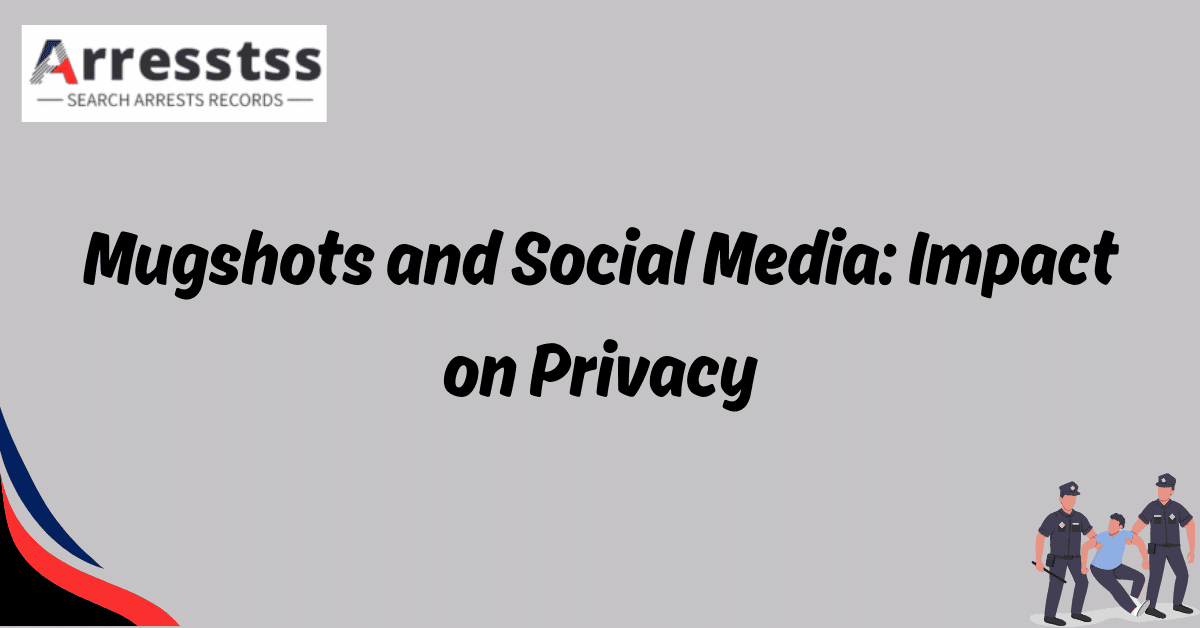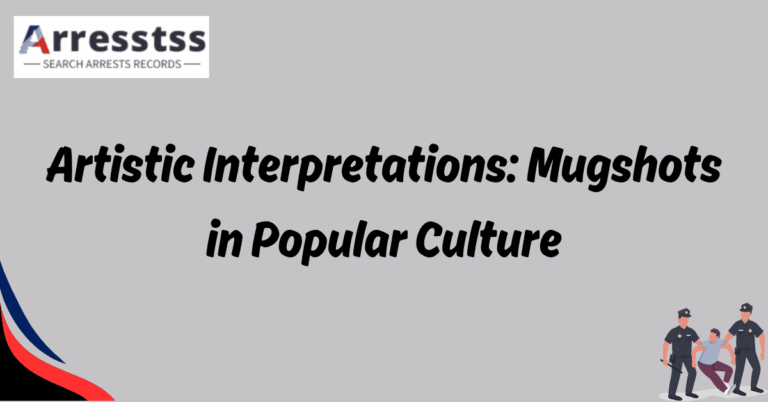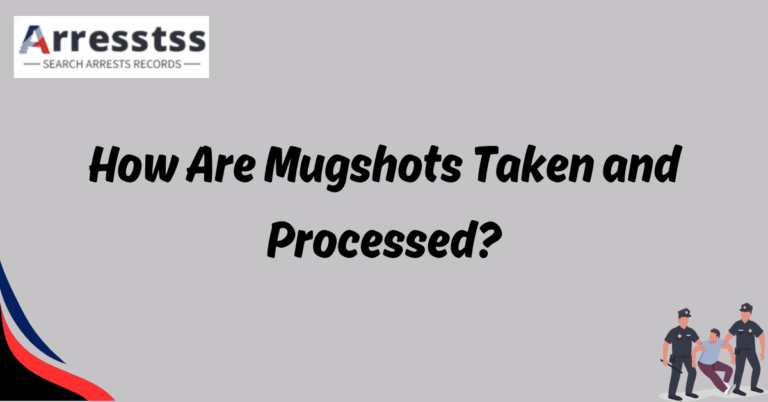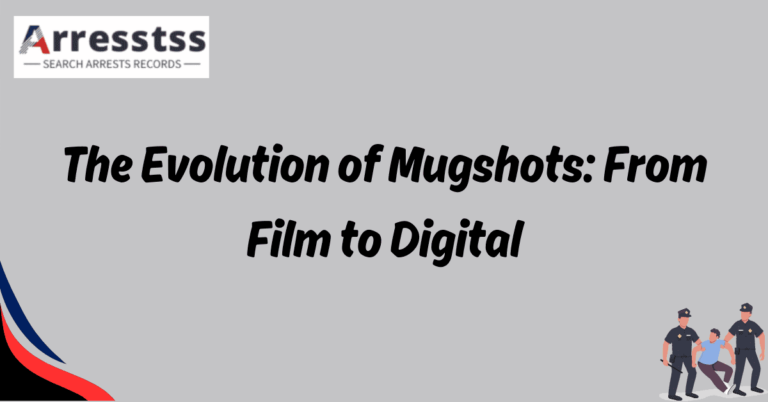Mugshots and Social Media: Impact on Privacy
Impact of Mugshots on Privacy
In today’s digital age, privacy has become a topic of great concern. With the rise of social media platforms and the widespread use of smartphones, our lives have become more connected than ever before. One area where privacy is often compromised is through the sharing of personal photos and information online. Mugshots, in particular, have garnered significant attention in recent years due to their impact on privacy.
The Origins and Purpose of Mugshots
Mugshots, typically taken at the time of an arrest, were originally intended for law enforcement purposes. These photographs were used to create a visual record of individuals who had been arrested, aiding in the identification and processing of suspects. Mugshots were primarily stored in police databases and were not readily accessible to the public.
The Rise of the Internet and Mugshot Publication
However, with the advent of the internet and the popularity of social media, mugshots have found their way into the public domain. Websites dedicated to publishing mugshots have emerged, often accompanied by personal information and details of the arrest. This has raised numerous questions about the impact on individuals’ privacy and the potential long-term consequences.
The Stigma and Negative Consequences
One of the main concerns surrounding the publication of mugshots is the potential for negative consequences. When these images and associated information are made available online, they can have long-lasting effects on individuals’ reputations and prospects. Prospective employers, landlords, and even friends and family members may come across these images, leading to judgments and assumptions that can be difficult to overcome.
Furthermore, the stigma associated with having a mugshot can create additional challenges. Individuals may face discrimination, social isolation, and difficulties in reintegrating into society. The public availability of mugshots can perpetuate a cycle of punishment and hinder individuals’ efforts to move forward and rebuild their lives.
Legal and Ethical Considerations
The publication of mugshots raises significant legal and ethical questions. While laws regarding the removal and regulation of mugshots vary by jurisdiction, many argue that individuals should have the right to control the dissemination of their arrest records. The potential for abuse and exploitation is also a concern, with websites often charging exorbitant fees for mugshot removal.
Protecting Privacy in the Digital Age
As technology continues to advance, the protection of privacy becomes increasingly crucial. It is essential to explore legislative measures that balance the need for transparency and public safety with the protection of individuals’ rights. Additionally, educating individuals about their rights and the potential consequences of sharing personal information online is vital in fostering a more privacy-conscious society.
FAQ’s
What are mugshots?
Mugshots are photographs taken at the time of an arrest. They are usually captured by law enforcement agencies to document the physical appearance of the individual at the time of the arrest. Mugshots typically include a frontal and profile view of the person’s face, along with basic identifying information such as their name, date of birth, and the date and location of the arrest.
Originally, mugshots were used solely for law enforcement purposes, such as identifying suspects, tracking criminal records, and aiding in investigations. However, with the rise of the internet and social media platforms, these images have become more accessible to the general public.
How are mugshots impacting privacy?
The widespread availability of mugshots online has raised privacy concerns. Once a mugshot is released, it can quickly spread across various websites and social media platforms, making it easily searchable by anyone with internet access. This exposure can have severe consequences for individuals, even if they are later proven innocent or charges are dropped.
The public availability of mugshots can result in reputational damage, potential job loss, and even discrimination. It can also perpetuate a negative perception of individuals, as they are often associated with criminal activities solely based on the presence of a mugshot online.
Can mugshots be removed from the internet?
Removing mugshots from the internet can be a challenging and time-consuming process. While some websites may offer removal services for a fee, many platforms may refuse to take down the images or require extensive documentation to prove the individual’s innocence or case resolution.
Additionally, even if a mugshot is successfully removed from one website, it may still be available on other platforms, making complete removal difficult. Individuals must be proactive in monitoring their online presence and taking necessary steps to protect their privacy.
Are mugshots considered public records?
Yes, mugshots are generally considered public records. They are created by law enforcement agencies as part of their official duties and are subject to public access under the Freedom of Information Act (FOIA) in the United States. However, the interpretation of public records laws may vary by jurisdiction, and some states have implemented specific regulations regarding the release and dissemination of mugshots.
It is important to note that while mugshots themselves may be considered public records, the online publication and distribution of these images by third-party websites is a separate issue. Some states have introduced legislation to restrict the commercial use of mugshots or require removal upon request.
What is the impact of mugshots on employment prospects?
Mugshots available online can have a detrimental impact on employment prospects. Many employers conduct background checks and online searches to assess the suitability of potential employees. If a mugshot appears during these searches, it can create a negative impression and raise concerns regarding an individual’s character and reliability.
Even if the charges related to the mugshot were dismissed or the individual was found not guilty, the mere presence of the image can still create biases and unfair judgments. Individuals need to be aware of their digital footprint and take steps to mitigate any potential negative impact on their employment prospects.
Conclusion
Mugshots, once intended solely for law enforcement use, have become a contentious issue in the digital age. The proliferation of these images online raises concerns about privacy, reputation, and the potential for long-term consequences. Society must address these challenges, finding ways to protect individuals’ privacy in an increasingly connected world.







